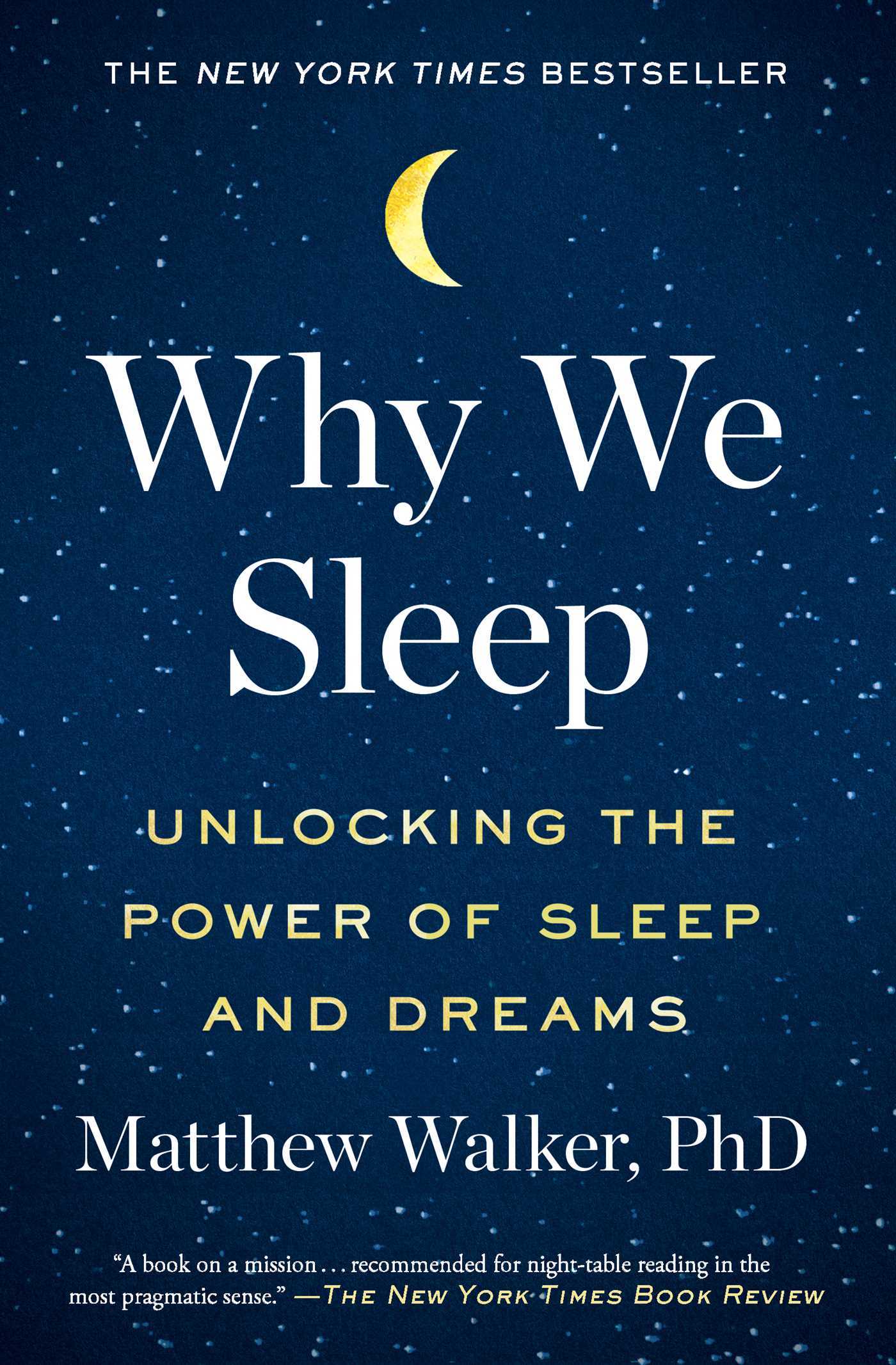
Why We Sleep: Unlocking the Power of Sleep and Dreams
Matthew Walker
About the Author

Matthew Walker
Questions & Answers
Sleep serves multiple critical functions and offers numerous health and cognitive benefits. Primarily, sleep:
-
Enhances Brain Function: Sleep aids in learning, memory, and decision-making. It consolidates memories, allowing us to retain information better. Sleep spindles, a type of brainwave activity, play a key role in this process.
-
Supports Emotional Health: Sleep helps regulate emotions, reducing the risk of depression and anxiety. REM sleep, characterized by dreaming, recalibrates emotional circuits, aiding in social and psychological challenges.
-
Boosts Immune System: Sleep strengthens the immune system, helping fight off infections and diseases. It also aids in the production of immune cells.
-
Regulates Metabolism: Sleep helps regulate blood sugar levels, appetite, and metabolism, reducing the risk of obesity and diabetes.
-
Promotes Cardiovascular Health: Adequate sleep can lower blood pressure and improve heart health, reducing the risk of heart disease and stroke.
-
Enhances Creativity and Problem-Solving: Sleep provides a virtual reality space for the brain to integrate knowledge, fostering creativity and problem-solving abilities.
-
Supports Physical Recovery: Sleep aids in muscle repair and growth, and helps maintain overall physical health.
Sleep deprivation, on the other hand, can lead to cognitive impairments, mood disorders, weakened immune function, and increased risk of chronic diseases, highlighting the importance of adequate sleep for overall health and cognitive abilities.
Sleep deprivation significantly impacts mental health. It impairs concentration, leading to cognitive failures like drowsy driving, and disrupts emotional regulation, causing mood swings and emotional instability. Chronic sleep loss exacerbates psychiatric conditions, including depression, anxiety, and bipolar disorder. It also affects the brain's emotional centers, leading to exaggerated emotional responses and difficulty controlling impulses. Sleep disruption can contribute to the development and maintenance of mental illnesses, and its neglect can lead to a decline in psychological well-being, affecting cognitive function, emotional stability, and overall mental health.
The biological mechanisms behind sleep involve a complex interplay of circadian rhythms and sleep stages. Circadian rhythms are governed by the suprachiasmatic nucleus (SCN) in the brain, which sets a 24-hour internal clock. This clock influences various bodily functions, including sleep-wake cycles, body temperature, and hormone release.
Sleep stages include Non-Rapid Eye Movement (NREM) and Rapid Eye Movement (REM) sleep. NREM sleep has four stages, with deeper stages occurring earlier in the night. REM sleep, characterized by rapid eye movements and vivid dreams, typically occurs in the later stages of sleep.
The sleep-wake cycle is regulated by the balance between sleep pressure (accumulated during wakefulness) and circadian rhythms. As sleep pressure builds, the SCN signals the release of melatonin, promoting sleep. Upon awakening, the SCN adjusts the release of melatonin, and the cycle restarts. This intricate system ensures that sleep and wakefulness are appropriately timed and balanced, supporting overall health and well-being.
Improving sleep quality and overcoming common sleep disorders like insomnia and sleep apnea involves a combination of lifestyle changes and, in some cases, medical intervention. For insomnia, cognitive behavioral therapy for insomnia (CBT-I) is often the first-line treatment, which includes techniques like establishing a regular sleep schedule, avoiding caffeine and alcohol, and relaxation techniques. For sleep apnea, a CPAP machine is commonly used. General tips for better sleep include:
- Maintain a Regular Sleep Schedule: Go to bed and wake up at the same time every day, even on weekends.
- Create a Restful Environment: Keep the bedroom cool, dark, and quiet. Use comfortable bedding.
- Limit Screen Time: Avoid screens at least an hour before bedtime.
- Exercise Regularly: Physical activity can improve sleep quality, but avoid vigorous exercise close to bedtime.
- Mind Your Diet: Avoid heavy meals, caffeine, and alcohol before bedtime.
- Relaxation Techniques: Try meditation, deep breathing, or progressive muscle relaxation before bed.
- Seek Professional Help: If sleep issues persist, consult a sleep specialist.
Sleep plays a crucial role in society, affecting physical and mental health, productivity, and safety. It enhances cognitive functions, memory, and emotional regulation, and is vital for immune system function and overall well-being. To promote a culture of healthy sleep in the modern world, we can:
- Educate: Increase awareness about the importance of sleep through schools, workplaces, and media.
- Encourage Sleep-Friendly Environments: Design workspaces and homes that support sleep, like reducing exposure to artificial light and noise.
- Support Sleep Hygiene: Promote good sleep habits, such as maintaining a regular sleep schedule and creating a relaxing bedtime routine.
- Advocate for Sleep-Friendly Policies: Encourage flexible work hours and policies that support adequate sleep, like napping breaks.
- Promote Sleep Education in Schools: Teach children about the importance of sleep and how to develop healthy sleep habits early on.
- Incorporate Sleep into Healthcare: Ensure healthcare providers address sleep issues and offer interventions for sleep disorders.
- Use Technology Wisely: Limit exposure to screens before bedtime and use technology to monitor and improve sleep quality.